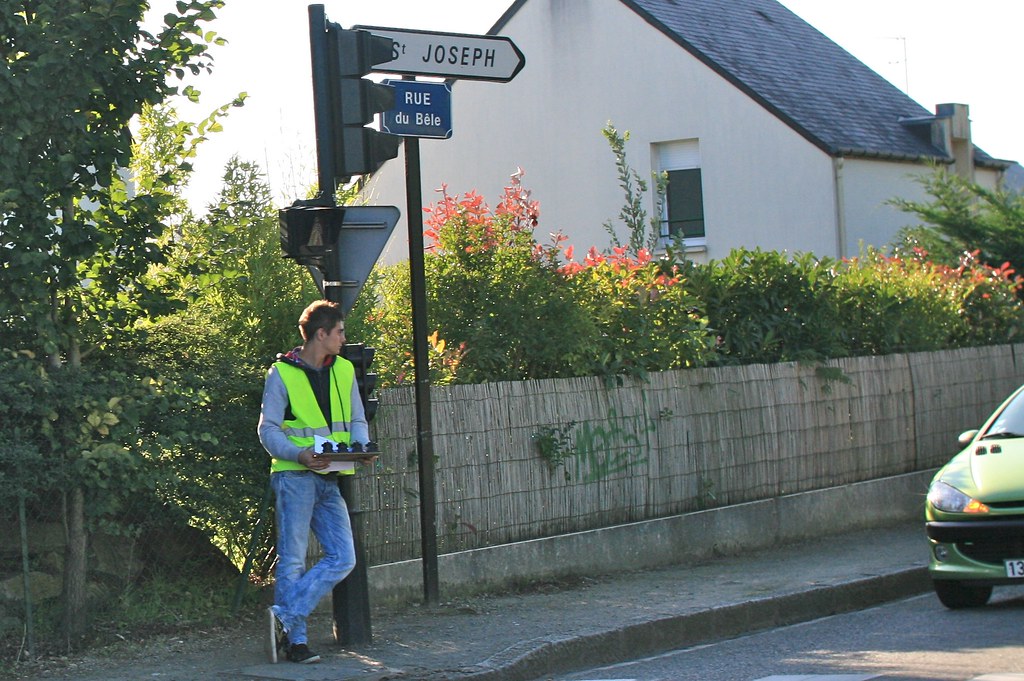 (Someone counting the number of car near a roundabout in Nantes, France)
(Someone counting the number of car near a roundabout in Nantes, France)
"Methodolatry and the Art of Measure by Shannon Mattern is an interesting piece that Jan sent me this morning. It addresses the implications of "urban data science", i.e. citizen scientists, public labs, urban explorers, infrastructural tourists generating and collecting their own data on one end of the spectrum, civic hackers on the other.
Both share the same "way of conceptualizing and operationalizing the city" and an "instrumental rationality/solutionism”... what the author calls “methodolatry,” the aestheticization and idolization of method. The author describes how the relationships between the urban environment and data with different historical pointers showing how cities are "'machine' for efficient circulation". She also refers to different claims by Lewis Munford, Friedrick Kittler and Ola Söderström which are quite relevant.
Some excerpts I found interesting:
"Is there an ethos, a value system, driving these data-generated processes, or is it all just algorithms? Of course, we wouldn’t say that there’s no ideology inherent in the algorithms themselves, but the computers powering these Big Data projects run billions of operations that cumulatively produce substantive transformations in the urban landscape, with little regard for underlying values (...) sometimes the most readily apparent or accessible way — for students in particular — to gain entry to those complex practices is to take on the aesthetics of measurement: to devise a clever data collection system, to accumulate a reassuringly big pile of data, and to massage that data into a persuasive visualization. That’s a worrisome trend. This isn’t to say that engagement with the affective or stylistic dimensions of measurement precludes engagement with its larger methodological functions; Feyerabend has shown us otherwise. Rather, I hope these concerns are brought into alignment: that the methodological packaging suits the purpose, the form serves the function, the knolling serves the knowledge. (...) perhaps these methodolatrous projects, in their aestheticization of measurement, are calling our attention to presumptions about scientific rigor, parodying our algorithmic impulses, tacitly asking questions about the ideology of a pervasive culture of measurement and assessment. Perhaps, despite their implicit alliance with CUSP and Cisco and the like, our citizen data gatherers want to highlight the “givenness,” the rhetorical nature of that data, to show its inherent irrationality, to demonstrate that the “science of cities” is also, necessarily, an art."
Why do I blog this? An interesting addition to the debates about data science and smart cities. Certainly a good complement to Adam Greenfield's "Against the Smart City".